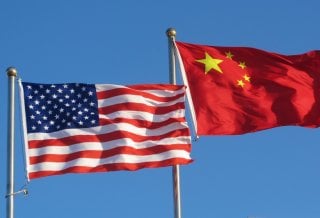Parag Khanna
 And so, rather than the global hierarchy freezing in 1989, we have arrived at a landscape of at least four coherent and viable centers of global leadership: the United States, Europe, China, and democratic Asia (especially the budding entente among Japan, Australia, and India). Geopolitically, it’s three against one. Economically, it’s every power for itself. And ideologically, each holds itself to be superior to the rest. Thirty years ago, “The End of History?” challenged Western declinism with a recipe for triumphalism. Today it is clear that no model will prevail over the others.
And so, rather than the global hierarchy freezing in 1989, we have arrived at a landscape of at least four coherent and viable centers of global leadership: the United States, Europe, China, and democratic Asia (especially the budding entente among Japan, Australia, and India). Geopolitically, it’s three against one. Economically, it’s every power for itself. And ideologically, each holds itself to be superior to the rest. Thirty years ago, “The End of History?” challenged Western declinism with a recipe for triumphalism. Today it is clear that no model will prevail over the others.Linear ideologies are by their very nature teleological, whereas today’s complex world presents a series of ever unfolding dialectical collisions producing novel outcomes that pull the system in new directions. Europe’s return to Asia as a commercial rather than colonial power and its tense co-development with China of the new Eurasian Silk Roads is just one example.
The antithesis, then, of Fukuyama’s putative thesis isn’t any singular ideological proclamation but a panoramic shift from small ‘h’ history to big “H” History, a recognition that the end of one phase of history already contains the seeds of the next phase’s dynamics. The foresight we need to cope with the complexity of today and tomorrow will derive more from unpacking these collisions through a holistic geopolitical frame rather than with the ideological blinders of political science. The past three decades have proven to be anything but boring. We should expect nothing less from those lying ahead.
Parag Khanna is the founder and managing partner of FutureMap, a data and scenario-based strategic advisory firm. His most recent books include The Future is Asian: Commerce, Conflict, and Culture in the 21st Century (2019) and Connectography: Mapping the Future of Global Civilization (2016).
No comments:
Post a Comment